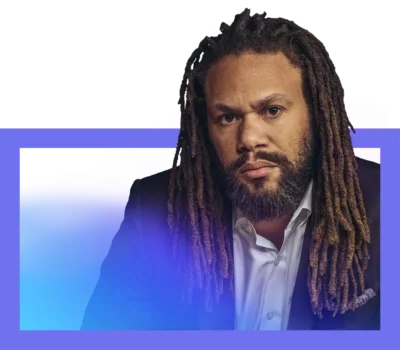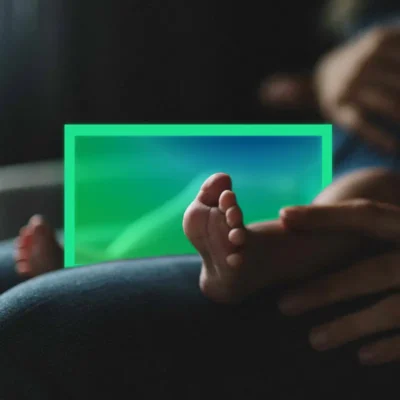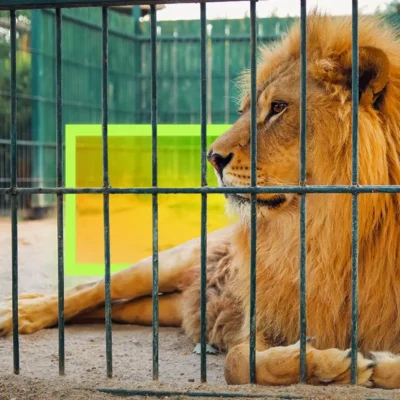Writing the main character
What’s the hardest part about being the main character in your own life? you’re also writing the script as you go along. And sometimes it’s hard to know when you need a scene change. Filmmaker Franklin Leonard encounters plenty of dramatic moments as he seeks to follow his creative dream. But those big moments, he comes to realize, aren’t what will change him into the person he truly wants to be. Change happens not in an explosion or a sudden shift of scenery, but slowly, in moments of reflection, and sometimes after years of pleasing others. What matters is … it happens.
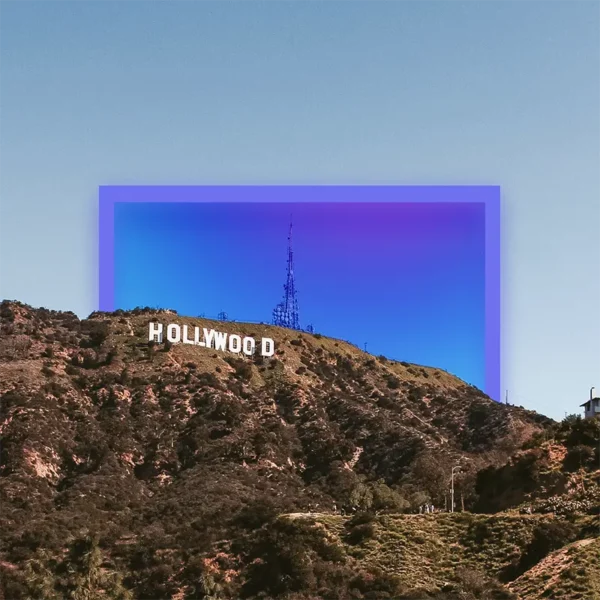
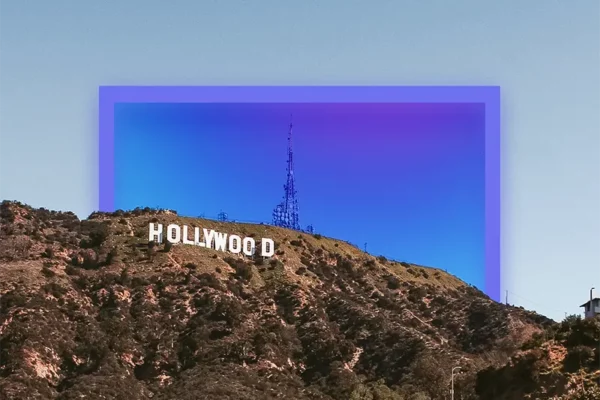
Table of Contents:
Transcript:
Writing the main character
FRANKLIN LEONARD: In the movie version of my life, I would have flown to L.A. and de-planed as a person re-born. I’d know exactly how to play to my deepest talents and live every moment of every day of my life realizing the creative destiny I was meant for.
But real life doesn’t work that way. Very few people actually make huge dramatic changes all at once. In the absence of a script or a director, most of us just muddle through. Life gives us a wake-up call; we course-correct a little, then we drift back. Life slams us again, and we course-correct again, and again and again.
And this is what I do.
ROHAN GUNATILLAKE: Franklin Leonard is the creative visionary behind The Black List, the now legendary community that unearths and champions the brilliant screenplays that studios overlook. In other words, Franklin helps rescue films that deserve to be made. Without The Black List, we maybe would have never seen some of the most beloved Oscar winners in the last fifteen years including Juno, The King’s Speech, and Slumdog Millionaire.
In today’s Meditative Story Franklin reflects on moments in his life when it seems the world is showing him the right path. In a movie, signals like these result in the protagonist completely turning their life around. But Franklin isn’t a character in a movie. And sometimes – perhaps even most of the time – the hero’s journey is messy.
In this series, we combine immersive first-person stories and breathtaking music with the science-backed benefits of mindfulness practice. From WaitWhat, this is Meditative Story. I’m Rohan, and I’ll be your guide.
The body relaxed. The body breathing. Your senses open. Your mind open. Meeting the world.
LEONARD: The road sign says “Mountain Zebra National Park.” I turn off the highway and start down a long stretch of dirt road. It’s winter in South Africa, but the horizon shimmers with the dry heat. It’s 1999. I’m 20 years old, on summer break from college in the U.S. I drive a champagne-colored four-door sedan that I’ve rented. And I only have one CD with me – I listen to it on repeat. It’s Ray Charles’ The Genius Hits the Road. It’s the soundtrack for my trip.
I’m here in South Africa to study the role jazz played in the political resistance to Apartheid. It’s for my senior thesis at Harvard. And it’s an incredible moment to be here. Nelson Mandela has just finished his term as president. Change is in the air, and, however naively, I feel very much a part of it. To help pay my way on the trip, I’m writing about tourist spots for the Let’s Go guide. Driving around the South African bush feels cinematic. I’m on my hero’s journey.
Everything in front of me is desolate – a big wide empty space dotted with scrub brush and the occasional stunted acacia tree. The car bounces and jostles as I speed over the loose sand in the roadbed.
Suddenly, an explosion. The car fishtails in the sand, launches into the air and flips.
I now know that my rear tire had burst. But in the moment, I don’t know what’s happening. There’s no time to react. The car flips over, the roof collapses in, and somehow I land right side up but facing the opposite direction. Somehow my head finds a safe pocket of space. I just remember sitting there, thinking: Am I hurt?
The doors won’t open. So I take off my seatbelt and crawl out the shattered passenger’s side window.
I roll out, disoriented, and just stand there, kind of dazed. I feel the enveloping heat. I hear my own heartbeat, pounding in my ears. Time passes really slowly. I stare at the car, which looks a bit like a crushed cake. And I think to myself: “I must be injured.” I check my head and torso. I’m not entirely sure if I’m okay. But what I do know, is that the easy narrative of my life has been upended.
Until now, everything in my life has neatly, triumphantly, progressed. I grow up in rural Georgia – a Black nerd, gifted in mathematics, from an upper-middle class family. My dad is a doctor – a neonatologist – and my mom teaches science at the nearly all-white private school, the same school I attend.
We live in a big house on 13 acres. My parents make it very clear to me, as I think most Black parents make clear to their Black kids: you need to be twice as good to get half as far, and you have the potential for greatness. You owe it to yourself and to your community and to your family to go be great. And for you, being great means excelling academically. My senior year of high school, I don’t take calculus, I help teach it. I graduate valedictorian.
For most of my adolescence and into college, my parents’ expectations match mine. The goal is always to keep climbing the next rung on the ladder. Perfect grades in high school. Perfect SAT score. Get into Harvard. I win the Hoopes Prize my freshman year.
When I turned down that dirt road in South Africa – the summer before my senior year – my goals were pretty clear: apply to Yale Law School, clerk for a Supreme Court justice, then go join a big firm.
And, I am down with this plan, or think I am. But underneath that, I’ve always felt drawn to a creative life. I’ve always wanted to write. And that’s what I’m doing in South Africa. I’m writing for this guidebook – and I’m headed for the zebras.
But for now, there will be no zebras. I’m standing, dazed, next to my crushed rental car, and I see a plume of dust in the distance. A car approaches. And a couple jumps out.
And they ask me, “Is there anybody else in the car?”
And I respond, “No, it’s just me. I’m fine.”
And they point at me. “But there’s blood.”
“Yeah. I just nicked my hand. I’m okay.”
“We saw your car flip. We called an ambulance to bring body bags. We were sure that there was at least one person dead.”
The ambulance arrives, and the EMTs do the standard concussion protocols. I don’t have a concussion. I don’t have any major injuries. I grab my bags from the car, and the ambulance drives me to a hospital just to be sure. But I’m okay.
I pay 200 U.S. dollars for a taxi to drive me back to my hostel, three hours away in Port Elizabeth, on the coast. And when I get there, it’s early the next morning. I walk into the common room, and everyone’s gathered around the television, watching the news. John F. Kennedy, Jr. has just died in a plane accident.
I’m stunned. I knew John. I’d interned for his magazine George two summers prior, and he’d offered me a job after I graduated. And now, he’s gone.
We both have accidents on the same day. His plane crashes. My car crashes. I get lucky. He doesn’t. And now I’ve glimpsed death twice in the last 24 hours.
And suddenly, the imagined script of my life no longer quite fits. Until now, I mostly feel aligned with what my family and community expect of me. I follow their expectations and my own. I do what I’m good at. But after the accident, these expectations don’t feel germane to me finding my happiness. They aren’t what I really care about. If I only have one life, and that life could end at any time, this isn’t what I’m meant to be doing.
GUNATILLAKE This tension between what we’ve been told we should be doing with our lives and our own instinct and sense. I know it well. When I feel that tension, I like to soften my face and shoulders and just breathe it out. Join me if you like. Just breathe it out.
LEONARD: Watching the television, I am still holding my stack of law school applications that were in the car with me. I walk over to the trash can next to the shared bathroom and drop them in. And then I crawl into my sleeping bag on a bunk bed in a room with 12 strangers and fall into a deep, deep sleep.
Now in the movie version of my life, I would emerge from that wreckage in South Africa and completely change my life. Throw away the law school applications, and march in the direction of my seemingly obvious destiny. I would know exactly what it meant to live up to my potential while also fulfilling my own desires. I would have clarity – and that clarity would give me the courage to follow my convictions.
But I’m not a character. I’m just Franklin Leonard – and I don’t have the benefit of a script or a director. After the accident, I feel a sense of urgency and freedom that comes with throwing away the law school applications. But a few weeks later, I return to campus, and the pull of expectations starts tugging me back.
The next spring, I graduate, magna cum laude.
A teaching assistant from one of my classes calls me. “Hey, I’m running for Congress in Cincinnati; do you want to help me run my campaign?” This isn’t a part of my plan. I have no idea where it may lead. It’s the first time in my life that I make a split-second decision. “Yes,” I say. It feels like my next adventure.
When the campaign wraps, I travel to Trinidad on a fellowship and work as a journalist for six months. After South Africa, I’m fascinated by studying stable multi-racial democracies. But I’m fascinated by a lot of things. I want to experiment.
I decide to spend a year in New York, bartending and writing a novel. And when I share this new plan with my mom, hoping that she’ll see how right this path is for me – she doesn’t. When I tell her that that’s my plan, she says simply, “No, you’re not.”
I respond, “Yes, I am.”
To which she responds, “We didn’t do everything we did – and more importantly you didn’t do everything you did – to get into Harvard and graduate magna cum laude to go be a bartender and write a novel. That’s just not going to happen.”
Fortunately, the prestigious management consulting company McKinsey had offered me a job so I take it. And like that, another brass ring in doing what’s expected of me.
But now I’m living in New York. I attend late-night poetry slams while I work 12- to 15-hour days in the office. I try to be everything and burn the candle at both ends.
One morning, I’m in my kitchen in Williamsburg, slicing apples for a snack to take to work. And just for a minute, I pause, and I catch myself thinking, “If I just let the knife slip and cut into my hand just a little, nothing serious, just a light flesh wound, I could go to the emergency room today instead of going to the office.” That kind of thinking is a clear sign that I’m on the wrong path.
Not long after that, I sit in the break room at the office, buttering a bagel, when the Today Show plays on the television. One of the anchors calls in to say that she “was just walking to work, and saw a plane fly into one of the Twin Towers.” I remember going to work for a long time after that, like I suspect a lot of people did, just thinking, “Is this my life?” After 9/11, I keep thinking, what if, God forbid, that plane had collided with this building? The epitaph to my life would read “Franklin Leonard, Management Consultant.”
A few months later, I get an email asking me to come to one of the larger conference rooms at McKinsey for an unscheduled meeting, along with most of the rest of the junior associates. The head of HR delivers the news that we are all being laid off, with five months’ severance. Many of the other associates panic, but I’m elated. This is a gift.
I was going to leave anyway, but now they’re paying me to do so. I don’t have to figure out my life for five more months. It’s a bit like one of those moments in a bad sitcom where you can hear the “Hallelujah Chorus” in the background.
This is literally everything I need right now.
GUNATILLAKE: Can you imagine being in that room? Franklin’s colleagues agitated and confused but Franklin himself, energized and bright. How is his posture different to the others? Let’s breathe in that brightness in this moment. Breathing in. Taking in inspiration with each inspiration.
LEONARD: I spend a lot of that time renting movies – and flipping through books about movies – in the Barnes & Noble in Union Square. I love great films. And I love Kim’s Video in the East Village. It’s an old-school, independent video store where you can rent DVDs. Because this is back in the era when you’d rent DVDs. I hear a snowstorm is coming, so I duck in to Kim’s and pick up three of my favorite films: Dr. Strangelove, Amadeus, and Being There.
I step out into the twilight with my DVDs under my arm. Brick buildings topped by water towers are outlined against the sky as it darkens. My breath turns to steam. It’s 14 degrees. I take two steps, and the first gust of wind hits me. It’s the start of a once-in-a-decade blizzard. People rush home from work, bundled up. By the time I get off the subway in Brooklyn and hurry back to the warmth of my building, the first snowflakes begin to fall. The radiator in my apartment clanks and burbles as I fire it up. I make popcorn, turn on the TV, and slip the first DVD into the player.
By the time the credits of the third film roll, it’s 3:30 a.m. I look out my bedroom window, and two or three feet of snow has fallen. My side street in Brooklyn is blanketed in deep drifts of white snow. The parked cars and street sign are nearly hidden from sight.
The last shot of Being There keeps rolling in my mind. Peter Sellers plays a simpleton gardener whose comments like, “there will be growth in the spring,” convince everyone he’s an economic genius. He becomes an advisor to the President, who then dies in office. At the funeral, the pallbearers are carrying the coffin, and they’re talking about Chauncey Gardener being their one and only chance to keep the Presidency in the next election. You’re of course thinking, oh, that won’t go well.
But then in the last shot, Peter Sellers wanders away from the funeral, through the snow on the ground, toward a lake.
And he walks on water.
The next day I buy a ticket to Los Angeles.
In the movie version of my life, I would have flown to L.A. and de-planed as a person re-born. I’d know exactly how to play to my deepest talents and live every moment of every day of my life realizing the creative destiny I was meant for.
But real life doesn’t work that way. Very few people actually make huge dramatic changes all at once. In the absence of a script or a director, most of us just muddle through. Life gives us a wake-up call; we course-correct a little, then we drift back. Life slams us again, and we course-correct again, and again and again. And this is what I do.
I arrive in Hollywood and start off as an assistant at an agency. A big one, but still, I’m just an assistant. Not exactly walking on water. I work in development for the production companies of a few A-list actors. I work for a prestigious production company. I deliver what people need. I return to being an A student. To serving other people’s dreams.
Almost by accident, I start a project called The Black List to identify the best unproduced screenplays in Hollywood each year. I turn it into a company – so that I can advocate for creative voices that should be heard.
I shift my focus from being the best – to finding the best: Other people and projects that deserve a shot … for whatever reason weren’t getting one. I was just good enough at school that I didn’t have to make that much of an effort to get access to all the things the world offers: Harvard, Hollywood, whatever. But there are a lot of people who are capable of a lot more than I am – if only they had the keys that I did. If they could just unlock these doors.
So I’m still an A student; it’s just who I am. But I’m also a guy with a bunch of keys who can open doors.
Become something of a joke amongst my friends. I’m the ultimate hype man. I’m the guy who says, “Hey, this person is awesome. Here are the 18 ways they’re awesome. I would bet my whole reputation on them.” And I feel like I’m really doing what I’m meant to be doing. But it’s also not the true end of my story.
Hollywood scripts often have a three-part structure, a beginning, a middle, and an end, and I see it in my own story.
Act 1 – The Set-up: Black nerd from the Deep South, sets out to succeed. My Act 1 ends with the car accident in South Africa.
Act 2 – The Confrontation: The kid becomes an adult, and struggles with which version of himself he wants to be. That Act of course ends with the snowstorm.
Act 3 is the Resolution: the hero figures things out.
I’m 42 now, and I’m still figuring out my third act. Because this isn’t a movie about Franklin Leonard. It’s just my life.
My constant battle is to take a step back, zoom out, and look at my life and where it’s going. Does what I’m doing match my values? Where am I aligned with them and where are they mis-aligned? I’m constantly trying to close this gap. And each step of the way, I think I’m getting better at it.
And my next act? Well, for me, it’s always been easier to put somebody else forward than put myself forward. But my next evolution is the hard work of cultivating my own talent. And for me, right now, that means writing a book. Not a novel, but a book that’s very much about the real world.
In evolutionary science, there’s a theory about the way species evolve. It’s called punctuated equilibrium: long periods of time where everything stays the same, followed by intense moments of rapid change. I think this happens to people, too. And I feel another punctuation coming.
This time though, instead of waiting for it, I’m calling in the next twist in the plot. And this time, I’ll be writing it.
Rohan’s closing meditation
GUNATILLAKE: Thank you, Franklin.
Taking Franklin’s lead, for our short closing meditation together, let’s do it in three acts.
Starting with eyes closed if that is safe and comfortable for you. Or with eyes open if that suits you better, either is fine. And what we’ll do is take the perspective of the filmmaker, and imagine what we look like in this moment.
Visualizing your body in whatever posture it is right now. And in the space around you. An idea of what we look like. Our idea of what we look like.
This might be easy to do for you, or it might be really tricky. It might bring up some self-judgment or not at all. Whatever, just doing what we can do visualize ourselves here in this place and time. A story of now.
In Act two let’s switch from a story of what we’re like, to one of direct experience. Whatever posture your body is in right now, how does it feel? What is the felt experience of this now? It’s still a story, but a different kind of story.
Inhabiting this moment as fully as possible. Not needing to change anything about it. No edits, no touch-ups, no generous lighting. Just the raw capture of what this is like.
Knowing experience as it is. Not as we want it to be. Not how we think it is. But how it is.
And for our third act. Letting the script remain unwritten. Awareness, just open. Spontaneous. Letting what arises arise. Our only job to be here and now. Our awareness, our mind free and untethered. Open and full of infinite possibilities.
Thank you Franklin. And thank you.
